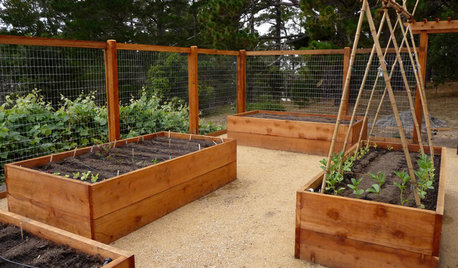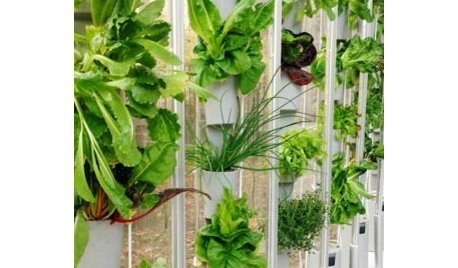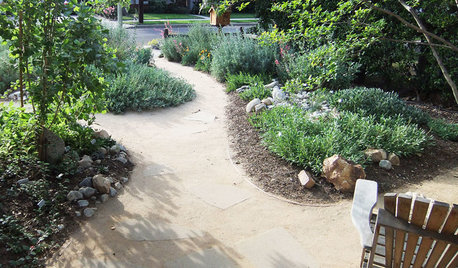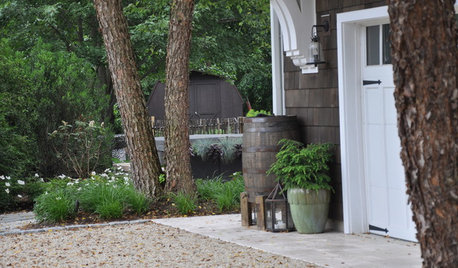Irrigation water - high pH?
katskan41
14 years ago
Related Stories

GARDENING GUIDESHow to Install a Drip Irrigation System
Save time and water with a drip watering system in your vegetable garden — a little patience now will pay off later
Full Story
PRODUCT PICKSGuest Picks: High-Tech Plant Helpers
Hydroponics, monitoring systems, even an electric pollinator ... these gadgets and services keep your greenery growing strong
Full Story
GREEN BUILDINGHow to Harvest Rainwater for Your Garden
Conserve a vital resource and save money by collecting stormwater for irrigation in a barrel or tank
Full Story
GARDENING GUIDES5 Things to Know About Watering Your Native Garden
Ensure the success of your new plantings with a smart approach to irrigation
Full Story

GREEN BUILDINGMeet a High-Tech Home That Monitors Itself
Energy vampires have nowhere to hide in this LEED Platinum home, as energy efficient as it is architecturally beautiful
Full Story
LIGHTINGThe Lowdown on High-Efficiency LED Lighting
Learn about LED tapes, ropes, pucks and more to create a flexible and energy-efficient lighting design that looks great
Full Story
GREEN BUILDINGHouzz Tour: High-End Luxury, Highest Ecofriendly Rating in California
Solar panels and energy savers let this posh LEED Platinum home produce as much energy as it consumes
Full Story
EARTH DAYGrow a Beautiful Garden With Ecofriendly Greywater
Reducing home water waste means lower bills and a healthier planet. Here's how to set up a greywater home irrigation system that can help
Full Story
SAVING WATER6 Reasons Why You Should Save Your Rainwater Now
Collect and store during the rainy season so you’ll have water ready for irrigation when you need it
Full StorySponsored
Franklin County's Preferred Architectural Firm | Best of Houzz Winner
More Discussions








justaguy2
katskan41Original Author
Related Professionals
Wixom Landscape Architects & Landscape Designers · Aurora Landscape Contractors · Lakeland Landscape Contractors · Lexington Landscape Contractors · Vacaville Landscape Contractors · Welby Landscape Contractors · Suisun City Landscape Contractors · Norton Solar Energy Systems · Alum Rock Solar Energy Systems · Irvington Solar Energy Systems · Webster Groves Window Contractors · Brea Fence Contractors · Framingham Fence Contractors · San Pedro Fence Contractors · Voorhees Fence Contractorsjustaguy2
katskan41Original Author
justaguy2
katskan41Original Author
justaguy2
katskan41Original Author
katskan41Original Author
katskan41Original Author
pardak
justaguy2
katskan41Original Author
justaguy2